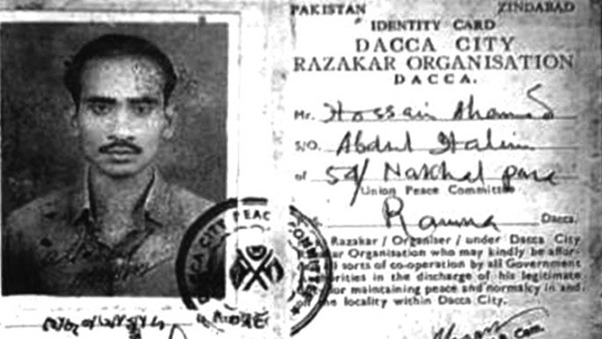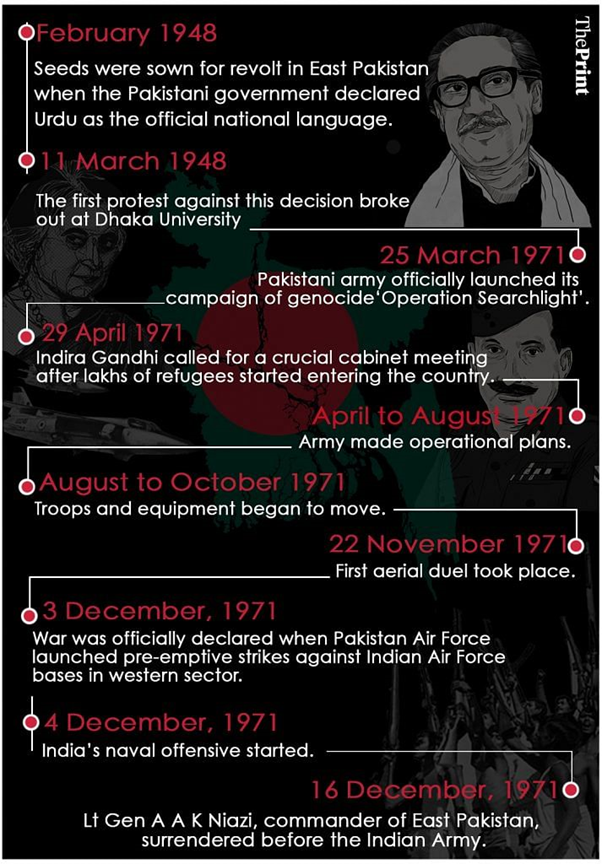Razakars, who accused of horrific crimes during the 1971 Bangladesh Liberation war
Context
Six members of ‘Razakar Bahini’, a locally recruited paramilitary force that collaborated with the Pakistan army during the 1971 Bangladesh Liberation War, were sentenced to death for ‘crimes against humanity’ by Bangladesh’s International Crimes Tribunal.
Who were the Razakars?
- Razakar literally means ‘volunteer’ or ‘helper’ in Persian and Urdu, but has come to mean ‘collaborator’ and is associated with betrayal in Bangladesh.
- The Razakars were an auxiliary force of the Pakistan army during the 1971 Bangladesh War.
- Composed of mostly pro-Pakistani Bengalis and Biharis from Bangladesh (formerly East Pakistan), the approximate 50,000 Razakars assisted the army in raids against the local population and were accused of committing horrific atrocities.
- Razakars mostly consisted of Urdu-speaking Bihari Muslims and religious parties that opposed the separation of East and West Pakistan, like Jamaat-e-Islami, Al Badr and Al Shams.

Fate after the Liberation War
- After Bangladesh achieved independence in December 1971, the newly formed government very quickly banned organisations that collaborated with Pakistani state forces, such as the Jamaat-e-Islami, and many of its influential leaders escaped to Pakistan.
- The Bangladesh Collaborators (Special Tribunals) Order was passed in 1972 and in the following year, the government introduced the International Crimes (Tribunal) Act in 1973, to investigate and prosecute those that committed atrocities during the war.
- 37,000 collaborators were identified, but around 26,000 were granted general amnesty in November 1973 by the government, while the remaining were sentenced to different terms of punishment or remained on trial.

- 37,000 collaborators were identified, but around 26,000 were granted general amnesty in November 1973 by the government, while the remaining were sentenced to different terms of punishment or remained on trial.

